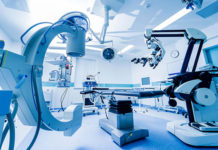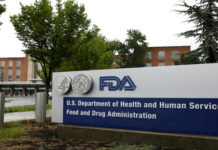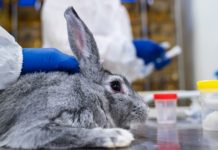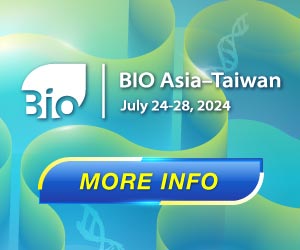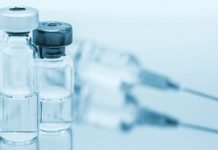GSK, Fondazione Telethon and Ospedale San Raffaeletoday announced the publication in BLOOD of the long-term safety and efficacy data from an analysis of 18 children with ADA-SCID treated.
with hematopoietic stem cell gene therapy between 2000 and 2010 at the San Raffaele Telethon Institute for Gene Therapy (SR-Tiget). Children with ADA-SCID, a very rare inherited disorder caused by a faulty gene, do not develop a healthy immune system which often proves fatal within the child’s first year of life.
Survival outcomes
The publication reports long-term outcomes in 18 patients treated with the investigational gene therapy (autologous CD34+ cells transduced to express ADA – now known as Strimvelis™). The key efficacy endpoint for the analysis was survival. All 18 patients were alive after a median follow-up of 6.9 years (ranging from 2.3 to 13.4 years) at the data cut on 8th May 2014. Immune reconstitution was observed from six months post-treatment for the majority of patients, and was sustained over time as was the presence of cells containing the healthy ADA gene.
In addition to overall survival, intervention-free survival and infection rates were also measured. Intervention-free survival was defined as survival without receiving a further stem cell transplant post-treatment with gene therapy (GT) or continuous enzyme replacement therapy (ERT) for more than three months. Fifteen of the 18 patients (83%) did not require these interventions. Three subjects required the re-introduction of ERT following treatment with GT, and two of those received a conventional BMT when an HLA-matched sibling was born.
The absolute number of severe infections seen post-GT was reduced when compared to the pre-treatment period (from 1.17 severe infections per patient year of observation to 0.26 severe infections per patient year up to three years post-GT, and dropping to 0.07 severe infections per patient year between four and eight years post-GT). Overall, for most patients, infection rates reduced over time in parallel with the reconstitution of the immune system. At the time of reporting, 12 out of 14 patients (86%) surveyed were attending pre-school/school as appropriate for their age.
Prof. Alessandro Aiuti, Principal Investigator, San Raffaele Telethon Institute for Gene Therapy, Milan, commented, “For children with ADA-SCID who do not have a matched related donor, alternative options include continuous enzyme replacement therapy or a bone marrow transplant from an unrelated or less well-matched donor. Transplants from these donors may cause graft vs host disease (GvHD) in some patients and other complications which can be fatal to the patients. Strimvelis is based on a single administration of gene corrected stem cells taken from patient’s own bone marrow so there is no risk of GvHD. This work has been possible thanks to the efforts of dedicated investigators and collaborators over many years, in particular Prof. Maria Grazia Roncarolo, who set up the Paediatric Clinical Research Unit of SR-Tiget, and Prof. Fabio Ciceri, Head of the San Raffaele Stem Cell Programme”.
Dr. Maria Pia Cicalese, lead author of the paper reporting the study said, “This paper documents persistence of efficacy for several years, as well as appropriate growth and regular school attendance in most patients which is encouraging”.
Dr. Francesca Ferrua, co-lead author of the study said, “Making a decision on the most appropriate treatment option is highly emotional and challenging for parents, and we are grateful to the parents who participated to the study which allowed us to gain crucial information through several years of follow up”.
Jonathan Appleby, PhD, and Medicines Development Leader, GSK, commented, “We are delighted to publish this formal update on the long-term safety and efficacy of Strimvelis. This stem cell gene therapy is the first to have received a positive opinion in Europe. Although Strimvelis has been tested in clinical trials and independently judged to be appropriate for more widespread use by the Committee for Medicinal Products for Human Use (CHMP), it is very important that we follow patients over the long-term and that we will continue to update the medical community with the data so that patients and physicians can make appropriate treatment choices.”
About the development of Strimvelis
The pivotal clinical study for Strimvelis was generated in a trial initiated at SR-Tiget in 2002, the sponsor for which was Fondazione Telethon. All patients were treated at Hospital San Raffaele in Milan and all medicinal product was made by MolMed S.p.A. GSK was the financial sponsor from April 2012 onward and reported the findings from the study which remains ongoing.
About the GSK / Telethon / OSR collaboration
The gene therapy for the treatment of ADA-SCID was originally developed at the San Raffaele Telethon Institute for Gene Therapy (SR-TIGET), a joint operation by Ospedale San Raffaele (OSR) and Fondazione Telethon (Telethon), and was taken forward by GSK through a strategic collaboration formed in 2010 between GSK, OSR and Telethon. Within the partnership GSK, working with the biotechnology company MolMed S.p.A, has applied its expertise in product development to optimise, standardise and characterise a manufacturing process that was previously only suitable for clinical trials into one that has been demonstrated to be robust and suitable for commercial supply.
GSK – one of the world’s leading research-based pharmaceutical and healthcare companies – is committed to improving the quality of human life by enabling people to do more, feel better and live longer. For further information please visit www.gsk.com. Strimvelis™ is a registered trademark of the GSK Group Companies.



